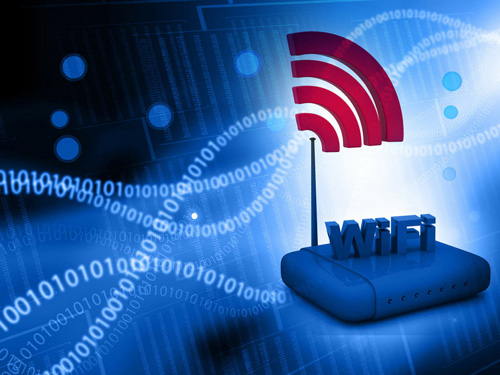Observer Report
Islamabad
With a steep rise in the number of COVID-19 cases in Pakistan, public anxiety is growing and people are staying indoors due to lockdowns across the country. This is contributing to the increased usage of data for work with limited resources, resulting in a significant impact on the internet connectivity cost. During the lockdown, dependency on connectivity is increasing every day as more people are socializing digitally, businesses are adapting to work from home, children are getting online education, grocers and food chains have started online delivery through mobile apps to bring convenience to people.
While the connectivity needs are increasing, customers of cellular operators in Pakistan are facing difficulties in recharging their balance due to extensive countrywide lockdown. Along with this difficulty, significant part of the population is struggling to make ends meet due to increasing unemployment and limited livelihood opportunities. In these challenging times, it’s more important than before to provide relief to the 165 million telecom customers in any way of form possible.
With the advent of the coronavirus pandemic, a lot of organisations have had to make the difficult decision of salary cuts and layoffs, small business have been forced to shut down, and unemployment is on the rise. More pressing than that is the impact the pandemic and the lockdown, though necessary, has had on the small shop owners, the fruit and vegetable sellers, the daily wagers, which include our plumbers, electricians, gardeners, rickshaw drivers, household help and so many more. This downtrodden segment of our society, already struggling to make ends meet has been hit the worst. There is no doubt that the government, private organisations and individuals have rallied to provide in kind and cash donations but so much more relief is needed.
This vulnerable segment of our society, among many others, is dependent on mobile services; to connect with loved ones, receive coronavirus updates and awareness, (as most do not have televisions in their homes), to connect with and be contacted by charity organisations for ration distribution, to send and receive money through mobile banking and so much more. This is why customers throughout the country are demanding cost-effective calls, SMS, internet packages and reduction in tax on mobile recharge, to support the new, hopefully temporary, normal.
The operators have played their part and have launched special packages for different sets of people including the business community, students and other social packages for entertainment as a part of in-kind donation.
“The reduction in mobile taxes will not only result in additional airtime for the customers to help them financially at a difficult time but will also reduce the number of visits to shops for recharging load.” said Mohammad Alamgir Khan, a worker in Islamabad. 12.5% withholding tax or advance income is deducted at the time of mobile recharge, this is one of the highest as most of the other sectors in the country are paying in the range of 1-5% and a lot of these mobile consumers do not come under the tax net. Pakistan has 165 million cellular subscribers, who are paying PKR 70 to 80 billion WHT per year. The minimum wage of a common man is between PKR 16,000 to PKR 17,000 per month, whereas the taxable income is PKR 50,000 per month.
Out of a population of 220 million, only 2.3 million file their taxes, which accounts for only 1% of the total population and of the total WHT on mobile services, approximately 10% is claimed by consumers only. This claim is made by consumers with higher and hence taxable incomes, while billions of rupees from the poor and those at the bottom of the pyramid are consumed by the government each year.
As more and more people across the country are being impacted by the Coronavirus, the government is requested to rethink their policy on Withholding Tax. “During these difficult times, communication with our loved ones is one of the things keeping people’s spirits high while keeping them connected to their job, education, distant health and latest information. If the coronavirus lockdown is prolonged , it will become more and more difficult for a common man to make ends meet, so tax relief on mobile services could go a long way in alleviating the immense financial crunch felt by millions of people”, said, Rafeh Ahmad, a tax consultant from Islamabad.
Furthermore, under the circumstances, GST should be rationalized to 16% throughout Pakistan and taxes on data services should be temporarily abolished. There is real potential to extend affordability for telecom services during these trying times through tax relief. This will not only ease the burden on people but will also help telecom operators introduce more economized, consumer-centric data packages.










